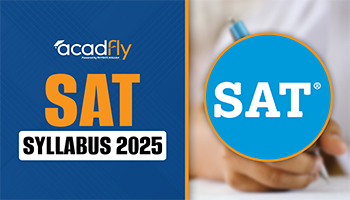
The University of Massachusetts Amherst is a renowned public research university offering diverse academic programs, including undergraduate, graduate, and professional courses across various disciplines. To secure admission, applicants must meet eligibility criteria, including academic qualifications and, for international students, proof of English language proficiency.
UMass Amherst provides numerous scholarships, both merit-based and need-based, to support students financially. With a strong focus on career prospects, the university equips students with skills and experiences through internships, research opportunities, and a robust alumni network, preparing them for success in their chosen fields globally.
University of Massachusetts Amherst Historical Background
The University of Massachusetts Amherst (UMass Amherst) has a rich history that dates back to its founding in 1863. Initially known as the Massachusetts Agricultural College, it has grown into one of the top public research universities in the United States. Below is a table summarizing key milestones in the university's history:
|
Year |
Milestone |
Description |
Significance |
|
1863 |
Founding |
Massachusetts Agricultural College was established. |
Focus on agricultural education and land-grant mission. |
|
1931 |
Name Change |
The college becomes the University of Massachusetts. |
Marks the expansion beyond agriculture into broader fields. |
|
1960s |
Academic Expansion |
Introduction of new academic programs and research centers. |
Transition into a leading research institution. |
|
2000s |
Global Recognition |
UMass Amherst rises to prominence as a top public university. |
Gained global recognition for academic excellence and research. |
This table offers a concise view of UMass Amherst’s historical milestones and highlights its growth into a prestigious institution.
Facts About the University of Massachusetts Amherst
-
Motto: The university’s motto is "Ense petit placid sub libertate quietem", which translates to "By the sword, we seek peace, but peace only under liberty."
-
Type: It is a public research university, offering a wide range of undergraduate, graduate, and professional programs.
-
Established: The University of Massachusetts Amherst was founded in 1863 as the Massachusetts Agricultural College, becoming the University of Massachusetts in 1931.
-
Academic staff: In the 2022/23 academic year, UMass Amherst employed approximately 2,000 academic staff.
-
Administrative staff: In the same academic year, there were around 4,000 administrative staff members.
-
Students: UMass Amherst had a total enrollment of approximately 30,000 students in the 2022/23 academic year.
-
Undergraduates: Of the total student population, around 22,000 were undergraduate students.
-
Postgraduates: The university had approximately 7,000 postgraduate students in the 2022/23 academic year.
-
Location: The University of Massachusetts Amherst is located in Amherst, Massachusetts, United States, with coordinates 42.3894° N, 72.5257° W.
-
Affiliations: UMass Amherst is affiliated with several prestigious organizations, including the Association of American Universities, the American Association of State Colleges and Universities, and the New England Association of Schools and Colleges.
-
Website: More information about the university can be found on its official website at umass.edu.
Student life at the University of Massachusetts Amherst
Student life at the University of Massachusetts Amherst is vibrant and diverse, offering a wide range of activities, clubs, organizations, and opportunities for personal and academic growth. The university provides an environment that fosters academic excellence, community engagement, and a rich social experience. Here are some key aspects of student life at UMass Amherst:
Campus Culture
UMass Amherst boasts a diverse and inclusive campus culture, where students from different backgrounds, cultures, and academic disciplines come together. The campus promotes respect, collaboration, and innovation, making it an exciting place to live and learn.
Student Organizations and Clubs
With over 200 student-run organizations, UMass Amherst offers a wide range of extracurricular activities that allow students to explore their passions outside of the classroom. Whether you're interested in student government, cultural groups, academic clubs, or special interest organizations, there is something for everyone. Popular student-run organizations include:
-
Student Government Association (SGA)
-
UMass Marching Band
-
Multicultural and Diversity Clubs
-
Outdoor Adventure Programs
-
Volunteer and Community Service Groups
Greek Life
The University of Massachusetts Amherst has a strong Greek life presence with numerous fraternities and sororities. Greek organizations offer social, philanthropic, and leadership development opportunities. These groups provide students with the chance to create lifelong friendships, participate in service projects, and develop professional networks.
Residence Life
UMass Amherst provides a variety of on-campus housing options for students, ranging from traditional residence halls to apartment-style accommodations. Residence Life at UMass emphasizes community building, offering events, programs, and resources to help students adjust to college life and make lasting connections. The university also provides a robust system of support through residential assistants and housing staff.
Dining and Campus Amenities
The dining experience at UMass Amherst is renowned for its variety, quality, and sustainability. The campus has several dining halls, food courts, and cafes offering a wide array of options catering to all dietary needs, including vegetarian, vegan, and gluten-free choices. The university has received recognition for having one of the best dining services in the country.
Additionally, UMass Amherst features numerous student resources and amenities such as:
-
Campus Recreation Center: A state-of-the-art facility offering fitness classes, gym access, and recreational activities.
-
Libraries and Study Spaces: Multiple libraries and quiet spaces for academic work and group study.
-
Health Services: Comprehensive medical, counseling, and wellness services are available for students.
Arts, Entertainment, and Events
UMass Amherst is home to a thriving arts and entertainment scene, with opportunities to engage in music, theater, dance, and visual arts. The campus hosts regular performances, exhibitions, and events. Students can also attend guest lectures, concerts, and workshops featuring notable speakers and performers.
-
The Fine Arts Center: A venue for theater productions, concerts, and art exhibitions.
-
UMass Concerts and Campus Events: Regular performances and entertainment hosted by the student-run programming groups.
Athletics and Recreation
UMass Amherst is home to the Minutemen and Minutewomen, who compete in NCAA Division I athletics. Students can cheer on the university’s teams in a variety of sports, including football, basketball, soccer, and hockey.
The campus also features numerous recreational facilities for students who enjoy outdoor activities like hiking, intramural sports, and fitness classes. UMass Amherst has extensive intramural and club sports programs, allowing students to participate in both competitive and non-competitive athletic activities.
Community Engagement and Volunteer Opportunities
UMass Amherst encourages students to be active members of the community and offers numerous volunteer opportunities. The university hosts programs for students to get involved in local service projects, internships, and outreach programs. Students can engage with various social justice, environmental sustainability, and education-related initiatives.
Support Services
UMass Amherst offers a variety of support services to ensure that students thrive both academically and personally. These include:
-
Academic Advising and Tutoring: Personalized academic support and tutoring for students in various subjects.
-
Career Services: Career development programs, internships, and job search resources.
-
Counseling and Mental Health: Support for students' mental health and well-being, including individual counseling, group therapy, and wellness workshops.
Programs and Courses at University of Massachusetts Amherst
The University of Massachusetts Amherst offers a wide range of undergraduate, graduate, and professional programs across various fields of study. The university is renowned for its academic rigor and diversity of disciplines, with many programs ranked among the best in the United States. Below is a summary of some key programs and courses offered at UMass Amherst:
|
Degree Level |
Programs/Courses |
Fields of Study |
Notable Departments |
|
Undergraduate |
Bachelor of Arts (BA), Bachelor of Science (BS) |
Humanities, Social Sciences, Engineering, Business, Sciences |
Department of History, Department of Computer Science, College of Engineering |
|
Graduate |
Master of Arts (MA), Master of Science (MS), Doctorate (PhD) |
Advanced studies in disciplines like Education, Psychology, Business, Engineering, Public Health |
College of Education, College of Engineering, School of Public Health |
|
Professional |
Juris Doctor (JD), Master of Business Administration (MBA), Master of Fine Arts (MFA) |
Law, Business, Arts, Design |
School of Law, Isenberg School of Management, College of Fine Arts |
|
Certificates |
Graduate Certificate Programs |
Specialized topics in Business, Education, Engineering, Health |
College of Education, College of Engineering |
|
Interdisciplinary |
Multiple disciplines and flexible programs |
Tailored programs in emerging fields like Data Science, Sustainability, Biotechnology |
College of Natural Sciences, College of Social and Behavioral Sciences |
This table highlights the range of programs available at the University of Massachusetts Amherst and provides insight into the diverse fields of study offered at both the undergraduate and graduate levels.
University of Massachusetts Amherst Courses and Fees 2024-2025
The University of Massachusetts Amherst offers a diverse array of undergraduate and graduate programs. Below is an overview of the typical fees and course options for the 2024-2025 academic year. Please note that fees may vary depending on the program and the student's residency status.
|
Degree Program |
Courses Offered |
In-State Tuition & Fees (2024-2025) |
Out-of-State Tuition & Fees (2024-2025) |
|
Undergraduate Programs |
Arts, Sciences, Business, Engineering, Health, Social Sciences |
$19,500 |
$38,000 |
|
Graduate Programs |
Master’s, PhD in Business, Engineering, Education, Computer Science |
$23,500 |
$45,000 |
|
MBA Program |
Full-Time MBA, Professional MBA, Online MBA |
$28,000 |
$28,000 |
|
Law Program |
Juris Doctor (JD) |
$36,000 |
$36,000 |
|
Online Programs |
Various undergraduate and graduate courses |
Varies (typically lower than in-person fees) |
Varies (typically lower than in-person fees) |
This table provides an overview of the estimated tuition fees for in-state and out-of-state students. Course offerings vary by program and field of study. For more specific details on courses and fees, it's recommended to visit the official University of Massachusetts Amherst website or contact the admissions office directly.
Eligibility Criteria for University of Massachusetts Amherst Applicants
The University of Massachusetts Amherst has specific eligibility requirements for students applying to both undergraduate and graduate programs. Below are the key criteria for admission:
Academic Qualifications:
Applicants must have completed their previous level of education (high school for undergraduate, bachelor’s degree for graduate) with a strong academic record. For undergraduate programs, a high school diploma or equivalent is required. For graduate programs, a relevant undergraduate degree with competitive grades is necessary.
English Language Proficiency:
Non-native English speakers must demonstrate proficiency in English through standardized tests like TOEFL, IELTS, or equivalent scores. The minimum required scores are typically 80 on TOEFL, and 6.5 on IELTS, but may vary by program.
Work Experience (for Select Programs):
For certain graduate programs, such as the MBA or other professional courses, applicants are required to have relevant work experience. This usually ranges from 2 to 5 years, depending on the program.
Additional Assessments or Interviews:
Some programs, especially competitive ones like the MBA, Law, and others, may require additional assessments or personal interviews as part of the selection process. These assessments often include a written statement or standardized testing (e.g., GRE, GMAT).
Age and Visa Requirements:
Applicants must meet the age requirements set by the program, with most undergraduate applicants needing to be at least 18 years old. International students must also fulfill visa requirements to study in the U.S., typically requiring an F-1 student visa for full-time enrollment.
University of Massachusetts Amherst Admission Process 2024-25
The admission process at the University of Massachusetts Amherst for the 2024-2025 academic year follows a standard procedure for both undergraduate and graduate applicants. Below are the key steps involved in applying to UMass Amherst:
|
Step |
Undergraduate Admission |
Graduate Admission |
|
Application Submission |
Submit online via UMass Amherst or the Common Application portal. Required documents: High school transcript, SAT/ACT scores (optional), letters of recommendation, personal statement, application fee or waiver. |
Submit via the UMass Amherst Graduate Admissions Portal. Required documents: Official transcripts, GRE/GMAT scores (if required), letters of recommendation, statement of purpose, CV, and application fee. |
|
Application Deadlines |
Early Action: November 5, 2024 Regular Decision: January 15, 2025 |
Varies by program. Fall Admission: December 1–March 1, 2025 Spring Admission: October 2024 |
|
Review Process |
Based on academic performance, SAT/ACT scores (if submitted), extracurricular activities, essays, and recommendations. Interviews may be requested. |
Evaluated based on academic qualifications, GRE/GMAT scores, letters of recommendation, work experience (where applicable), and program-specific criteria. |
|
Decision Notification |
Early Action: Mid-February 2025 Regular Decision: Late March 2025 |
Within 4-8 weeks of the application deadline. |
|
Acceptance and Enrollment |
Confirm by May 1, 2025. An enrollment deposit is typically required. |
Confirm acceptance by the program-specific deadline, usually April-May 2025. |
|
Additional Requirements (International Applicants) |
Proof of English proficiency (TOEFL/IELTS), financial documentation, copy of passport, and F-1 visa process for international students. |
Proof of English proficiency (TOEFL/IELTS), financial documentation, copy of passport, and F-1 visa process for international students. |
This table summarizes the key steps involved in the admission process for both undergraduate and graduate applicants at the University of Massachusetts Amherst for the 2024-2025 academic year.
University of Massachusetts Amherst Hostel and Campus Overview
The University of Massachusetts Amherst (UMass Amherst) is one of the leading public research universities in the United States. Known for its diverse academic programs, research initiatives, and vibrant student life, UMass Amherst offers an impressive campus and a range of accommodation options for students. Here’s an overview of its hostel and campus:
1. Campus Overview
Location
UMass Amherst is situated in Amherst, Massachusetts, in the scenic Pioneer Valley. The campus is about 90 miles west of Boston, providing students with a peaceful environment while being close enough to urban amenities.
Campus Size and Layout
The UMass Amherst campus spans over 1,450 acres, making it one of the largest campuses in the state. It includes academic buildings, student housing, recreational facilities, green spaces, and various dining options. The campus is divided into several sections: North, Central, and South campuses, with each area offering different services and facilities.
Academic Facilities
UMass Amherst offers state-of-the-art academic facilities. The university is known for its research centers and laboratories, especially in fields like engineering, business, and life sciences. Key buildings include the Isenberg School of Management, College of Engineering, and W.E.B. Du Bois Library, one of the tallest libraries in the world.
Recreational Facilities
The campus offers a variety of recreational facilities, including:
-
The Rec Center with fitness equipment, courts, and a swimming pool.
-
Amherst Golf Course for outdoor enthusiasts.
-
Student Union for social and extracurricular activities.
-
Various walking trails and outdoor spaces for relaxation.
Dining and Retail
UMass Amherst is known for its high-quality dining services, offering students a variety of meal plans, sustainable food options, and dietary accommodations. The UMass Dining program is regularly ranked as one of the best in the country.
2. Hostel and Accommodation Overview
UMass Amherst offers a variety of housing options to suit the needs of its diverse student body. There are both traditional dormitories and apartment-style accommodations.
On-Campus Housing
-
Traditional Residence Halls: These dormitories are common for first-year students. They are typically single-sex buildings with shared bathrooms, lounges, and study spaces. Examples include Berkshire, Hampshire, and Franklin Hall.
-
Apartment-Style Housing: For upperclassmen, UMass offers apartment-style living. These apartments come with kitchens and are more independent. Butterfield and Sycamore Halls are examples of apartment-style housing.
Room Types
-
Single Rooms: Typically more private but may cost more.
-
Double Rooms: Often shared with a roommate, these are the most common type of room.
-
Suites: A combination of several bedrooms with shared living areas and bathrooms.
Amenities in the Dorms
-
Furnished Rooms: Most dorm rooms are equipped with basic furniture such as a bed, desk, and dresser.
-
Laundry: On-site laundry facilities are available in most dorms.
-
Internet and Cable: Wi-Fi is available throughout the campus, and cable TV may be provided in some dorms.
-
Dining Plans: Many residence halls have dining facilities nearby, and students are often required to purchase a meal plan.
-
Security: UMass has 24/7 security, including surveillance cameras, campus police, and controlled access to residence halls.
Graduate and Family Housing
UMass Amherst offers housing for graduate students and families as well. There are special accommodations and apartment units available for students with children or partners.
3. Student Life
Clubs and Organizations
UMass Amherst is home to a wide variety of student organizations and clubs, ranging from academic and cultural groups to recreational and social clubs. The Student Government Association (SGA) plays a key role in campus life.
Cultural and Social Events
The university hosts various cultural, social, and entertainment events throughout the year, including concerts, guest lectures, and community service projects. The Fine Arts Center and the Mullins Center host major events, including performances by well-known artists.
Transportation
UMass Amherst offers various options for getting around campus, including shuttle buses and bike-friendly paths. Many students use bikes or the local bus system to explore the surrounding area, including the nearby town of Amherst.
Scholarship Opportunities at the University of Massachusetts Amherst graduates
The University of Massachusetts Amherst (UMass Amherst) offers several scholarship opportunities for graduate students to help support their academic and research endeavors. These scholarships are available to both domestic and international students across various disciplines. Below is an overview of scholarship options available for graduate students:
1. Graduate School Scholarships and Fellowships
UMass Amherst provides a variety of scholarships and fellowships specifically designed for graduate students. These opportunities can help cover tuition costs, living expenses, and research funding.
UMass Amherst Graduate Fellowship
The UMass Amherst Graduate Fellowship is a merit-based award that offers financial support to outstanding graduate students. The fellowship typically covers tuition and fees and may also provide a stipend to assist with living expenses. Graduate fellowships are often awarded based on academic excellence, research potential, and professional achievements.
Dean’s Fellowships
The Dean’s Fellowships are competitive awards offered to graduate students pursuing advanced degrees. These fellowships aim to support students who have demonstrated exceptional promise in their chosen field of study. The award amount varies, and it typically covers full or partial tuition along with a stipend.
Graduate Research Fellowships
UMass Amherst offers several Graduate Research Fellowships to support graduate students engaged in research projects. These fellowships are often discipline-specific and can provide financial research support, travel to conferences, or participation in specialized training. Many research centers and departments also offer fellowship programs for graduate students working on specific projects.
2. Department-Specific Scholarships and Fellowships
Many departments at UMass Amherst provide scholarships and fellowships tailored to graduate students within their specific fields. These awards are generally based on academic performance, research interests, and the department’s funding priorities. Examples include:
-
College of Engineering Fellowships: Graduate students in engineering fields may be eligible for various department-based fellowships, such as those offered by the Department of Mechanical and Industrial Engineering or the Department of Electrical and Computer Engineering.
-
College of Education Scholarships: Graduate students in education may have access to scholarships like the Graduate Scholarship in Education, which supports students pursuing graduate programs in teaching and leadership.
-
School of Public Health and Health Sciences Fellowships: Students pursuing graduate degrees in public health may be eligible for fellowships based on research in health policy, epidemiology, and biostatistics.
External Research and Teaching Fellowships
UMass Amherst encourages graduate students to apply for external scholarships, grants, and fellowships. These opportunities provide additional funding and recognition. Some well-known external programs include:
-
National Science Foundation (NSF) Graduate Research Fellowship Program (GRFP)
-
The Fulbright U.S. Student Program
-
The Truman Scholarship
-
The Ford Foundation Fellowship Program
3. Need-Based Scholarships
Although most of the graduate funding opportunities at UMass Amherst are merit-based, some need-based scholarships are available. Graduate students may apply for need-based financial aid through the Office of Financial Aid at UMass Amherst. The eligibility for these scholarships typically depends on the student’s financial circumstances and academic standing.
Graduate Student Emergency Fund
The Graduate Student Emergency Fund provides financial assistance to graduate students who encounter unforeseen financial challenges during their studies. This fund can be used to cover emergency expenses, such as medical costs or unanticipated tuition fees.
4. Teaching and Research Assistantships
In addition to traditional scholarships and fellowships, UMass Amherst offers teaching and research assistantships (TAs and RAs) to graduate students. These positions often come with a stipend and benefits, such as tuition remission. The responsibilities may include teaching undergraduate courses, conducting research, or assisting faculty members with academic projects. These positions provide invaluable experience and financial support.
5. External Scholarships
Many external organizations, foundations, and government agencies offer scholarships to graduate students at UMass Amherst. These scholarships can be specific to a discipline, demographic group, or research area. Some examples include:
-
The American Association of University Women (AAUW) Fellowships
-
The National Defense Science and Engineering Graduate (NDSEG) Fellowship
-
The Paul & Daisy Soros Fellowships for New Americans
-
The National Institutes of Health (NIH) Fellowship Programs
Students are encouraged to search for external scholarships via platforms such as Scholarships.com, Fastweb, and the U.S. Department of Education to explore additional funding opportunities.
6. Graduate Tuition Remission Programs
Some graduate programs at UMass Amherst offer tuition remission programs, where graduate students may receive a reduction or full waiver of tuition fees in exchange for work as teaching assistants, research assistants, or administrative assistants. These remission programs are often paired with stipends and may also provide health insurance benefits.
Placement Opportunities at The university of Massachusetts Amherst
UMass Amherst offers excellent placement opportunities for its students, thanks to strong ties with a variety of industries and companies. The Career Services department provides a range of resources, including career counseling, resume building, mock interviews, and job fairs. Additionally, the university hosts career-specific networking events and internship opportunities that help students connect with top employers.
|
Program Area |
Potential Career Paths |
Average Salary Range |
Key Employers |
Additional Notes |
|
Engineering (Electrical, Mechanical, Computer Science) |
Software Engineer, Civil Engineer, Electrical Engineer, Systems Analyst |
$65,000 - $110,000+ |
Google, General Electric, IBM, Raytheon |
Strong demand for engineers in both tech and traditional industries. |
|
Business (MBA, Finance, Marketing) |
Financial Analyst, Marketing Manager, Consultant, Operations Manager |
$55,000 - $95,000 |
Deloitte, PwC, Amazon, Fidelity Investments |
Many alumni work in consulting or finance sectors, often with big firms. |
|
Health Sciences (Public Health, Biology, Nursing) |
Public Health Specialist, Research Scientist, Registered Nurse, Healthcare Administrator |
$45,000 - $80,000 |
Massachusetts General Hospital, CVS Health, Pfizer |
Increasing opportunities in healthcare and medical research sectors. |
|
Social Sciences (Psychology, Sociology, Political Science) |
Social Worker, Policy Analyst, Community Organizer, Human Resources Specialist |
$40,000 - $70,000 |
U.S. Government, ACLU, UN, NGOs |
Graduates often pursue public service, NGOs, or research-based roles. |
|
Education (Teaching, Leadership, Special Education) |
Teacher, Principal, Special Education Coordinator, Education Consultant |
$40,000 - $75,000 |
Public Schools, Educational Consulting Firms |
High demand for STEM teachers and educational administrators. |
Frequently Asked Questions
1. What is the acceptance rate at the University of Massachusetts Amherst?
2. What types of scholarships are available for graduate students at UMass Amherst?
3. How can I apply for graduate programs at UMass Amherst?
4. What are the housing options at UMass Amherst for graduate students?
5. Does UMass Amherst offer any online graduate programs?









